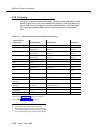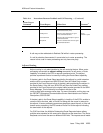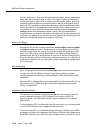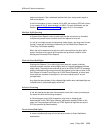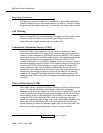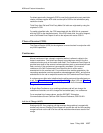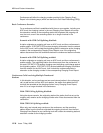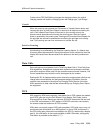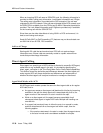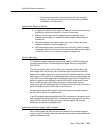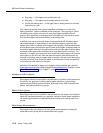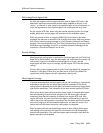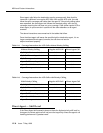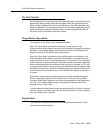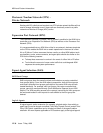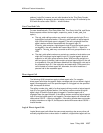
ASAI and Feature Interactions
12-30 Issue 7 May 1998
When an incoming DCS call uses an ISDN/PRI trunk, the following information is
provided to ASAI: calling party information, Look Ahead information and II Digits.
The calling party information is provided as the DCS extension if the call was
originated on the DCS network. If the call was originated off the DCS network, and
the ISDN CPN is available, then the CPN is sent to ASAI. Otherwise the default is
provided. The Look Ahead Information and II Digits are provided only if available
for the incoming call with the ISDN SETUP.
Since there can be other side-effects of using ASAI in a DCS environment, it is
best to avoid using such setups.
Send All Calls (SAC) or Call Forwarding (CF) features may not be activated over
an ASAI link for an off-ECS, DCS extension.
Advice of Charge
Starting with R5: calls that are launched over DCS will not receive charge
information even if those calls are eventually routed to a public network over
trunks that provide charge information.
Direct Agent Calling
Direct-agent is a special type of ACD call that is directed to a specific ACD agent,
rather than to any available agent in the split. It is invoked by specifying the
direct_agent_call option in the Third Party Make Call or Route Select capabilities.
This section covers the similarities and differences between the direct-agent call
and a regular ACD call; these similarities and differences are independent of
whether the direct-agent call is adjunct-monitored or nonadjunct-monitored.
Agent Work Modes with ACD
All ACD agent work modes operate the same for direct-agent calls as for regular
ACD calls; that is:
■ An agent can answer a direct-agent call destined for him/her by becoming
available in the split the direct-agent call is associated with; that is, the
agent must be in the manual-in or auto-in mode for the split.
■ While on a direct-agent call, the agent becomes unavailable for all
subsequent direct-agent or regular ACD calls. Multiple call handling can
override this.
■ If an agent had previously been in either the auto-in or manual-in mode,
and then disconnects from a direct-agent call within a split, then the
following applies:
— if the previous state was in the auto-in mode, then the agent returns
to the auto-in mode and is considered available for all splits.



